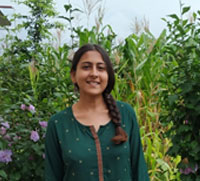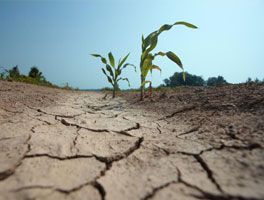 |
Dear readers,
Welcome to the Climate Weekly newsletter by the Centre for Science and Environment’s Climate
Change programme and Down to Earth.
The world’s biggest annual climate summit – COP 28 - is underway in Dubai, United Arab Emirates. It began on an optimistic note, with the operationalization of the Loss and Damage Fund on day one of the conference.
The headline issue at this year’s conference is undeniably the first ever Global Stocktake (GST). It is the exercise by which countries are assessing the collective progress made on achieving the climate goals outlined in the Paris Agreement (PA), with the aim of informing the path for global climate action going forward. Tamanna Sengupta from the CSE Climate Change team closely tracked the GST negotiations through week one from Dubai. As countries discussed the draft text, disagreements arose between developed and developing countries on the portions of the text pertaining to fossil fuel phaseout, which laid out an explicit timeline for coal but only vague references for the phasing out of oil and gas. On mitigation, developed countries including the US and Australia called for exclusion of references to historical emissions. Differences also arose over the paragraphs on Article 2.1c of the PA, which calls for aligning financial flows with low carbon development. Developing countries voiced concerns that 2.1c can be misused to decide where money should go and what constitutes “low carbon” development in the Global South.
Negotiations on the New Collective Quantified Goal (NCQG) on climate finance were also conducted. The new climate finance goal is to be decided next year at COP29. I followed the proceedings which in week one primarily focused on the modality of NCQG work for the coming year. There was consensus among countries to shift discussions from technical to negotiation- focused ones in 2024. Discussions included questions on whether to continue work through Technical Expert Dialogues or add a new process, and how to ensure political engagement starting early next year. Differences arose on options related to time frames, the reflection of Article 2.1c objectives in the NCQG (several developing countries opposed), as well as suggestions for ensuring inclusivity (for smaller developing countries and Observers) in future discussions.
From the venue in Dubai, CSE’s Director-General Sunita Narain decoded the key takeaways from week one and put forth her expectations from the remaining negotiations at COP28, which conclude on December 12.
|
|
 |
| |
 |
|
| |
 |
 |
| |
By - Sehr Raheja
Climate Change, CSE
|
| |
|
 |
|
|
| |
 |
|
| |
| EXTREME WEATHER TRACKER |
| |
November 2023 was warmest November on record globally, 1.75°C warmer than pre-industrial era: Copernicus, 07 December 2023
|
 |
 |
|
|
| |
 |
|
| |
 |
 |
Drought emergency declared by 23 countries in 2022-23, shows global drought map, 01 December 2023
|
|
|
| |
|
|
| |
|
|
| |
 |
|
| |
|
|
| |
|
|
| |
|
|
| |
 |
|
| |
CLIMATE NEWS | SCIENCE| IMPACTS| POLITICS |
|
| |
 |
|
| |
|
|
| |
 |
|
| |
|
|
| |
 |
|
| |
|
|
| |
 |
|
| |
|
|
| |
 |
|
| |
|
|
| |
 |
|
| |
|
|
| |
 |
|
| |
|
|
| |
 |
|
| |
|
|
| |
 |
|
| |
|
|
| |
 |
|
| |
|
|
| |
 |
|
| |
|
|
| |
 |
|
| |
|
|
| |
 |
|
| |
|
|
| |
 |
|
| |
|
|
| |
 |
|
| |
|
|
| |
 |
|
| |
|
|
| |
 |
|
| |
|
|
| |
|
|
| |
|
|
| |
|
|